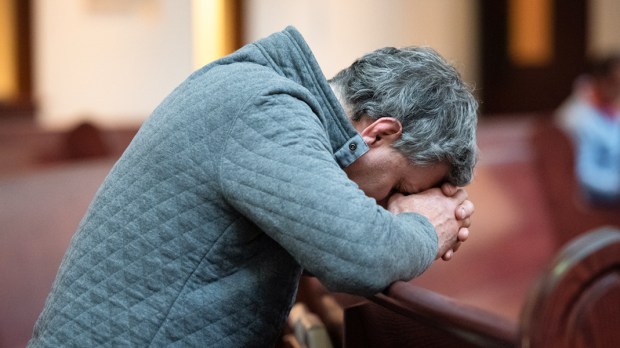Is it time for Lent already? Yes.
Is it time to gear up for half-hearted attempts at piety, penance, and sacrifice in which we have little confidence and for which we have little desire? I hope not.
But aren’t half-hearted attempts at piety, penance, and sacrifice in which we have little confidence and for which we have little desire a regular part of Lenten practice? I won’t ask for a show of hands.
Let’s try to look at Lent another way. The traditional practices for Lent are prayer, fasting, and almsgiving. I cannot imagine a proper Lent without prayer, fasting, and almsgiving. Yet I can easily imagine a corrupt and corrupting Lent through corrupted prayer, fasting, and almsgiving. I say that because prayer can become grasping, fasting can become dieting, and almsgiving can become bribing. How can we avoid those undesirable outcomes?
We need to remind ourselves:
I do not have all that I want, but that is not why I should pray.
I may need to lose weight, but that is not why I should fast.
I may have more than I need, but that is not why I should give alms.
So … why should we pray? Why should we fast? Why should we give alms? And why should we do these in a more intentional and challenging way during Lent?
To answer those questions, let’s recall why we have Lent in the first place. It is not simply to repeat familiar stories about deserts and devils and the like. We repeat Lent because we need to grow—better said, we need to mature—into living the mystery of dying and rising with Christ for the life of the world. We need repeated opportunities to (re-)discover that this world is not our true home, that we are marked for death and called to glory, and that the fallen world we live in would have us forsake and forget those essential mysteries. Day by day, throughout the year, courtesy of the world, the flesh and the devil, we acquire habits of heart and mind and practice that turn us away from Christ crucified, risen, reigning and returning.
We need repeated opportunities to (re-)discover that this world is not our true home, that we are marked for death and called to glory, and that the fallen world we live in would have us forsake and forget those essential mysteries.
So, if that is why we need Lent annually, how shall we pray? How shall we fast? How shall we give alms?
Perhaps we can during this Lent begin to say and live this:
I pray because I am a loved sinner who desires Heaven and is obliged to worship.
I fast because I forget so easily that I must rule my body and not be ruled by it.
I give alms because generosity makes me more like God, who loves selflessly.
Until we die, we are in a struggle between light and dark, sin and grace. After we die, all will be decided—that is to say, it will be revealed to us whether we have irrevocably made ourselves fit for Heaven or fit for Hell. Before that ultimate and terribly perfect, endless clarity, we need to imitate Christ, and conform to him, purifying our habits, hearts and minds so that we can be prepared to enter eternity well.
As Our Lady of Fatima said to St. Jacinta Marto: “If men only knew what eternity is, they would do everything in their power to change their lives.”
That is why we need to undergo Lent repeatedly, why we need to practice prayer, fasting, and almsgiving more fervently. We need these because time is running out and eternity is waiting for us. We need an ever more fervent Lent repeatedly because God’s mercy is inseparable from his justice, because he is holy and we are not. The disciplines of Lent are the graced means we can use to get into the only life raft that can ever come our way. Lent is a time of holy fear that promises endless joy. Please, for the love of God, let us pray, fast and give alms accordingly.
When I write next, I will offer another reflection for Lent. Until then, let’s keep each other in prayer.

Read more:
Why you should daydream about Heaven

